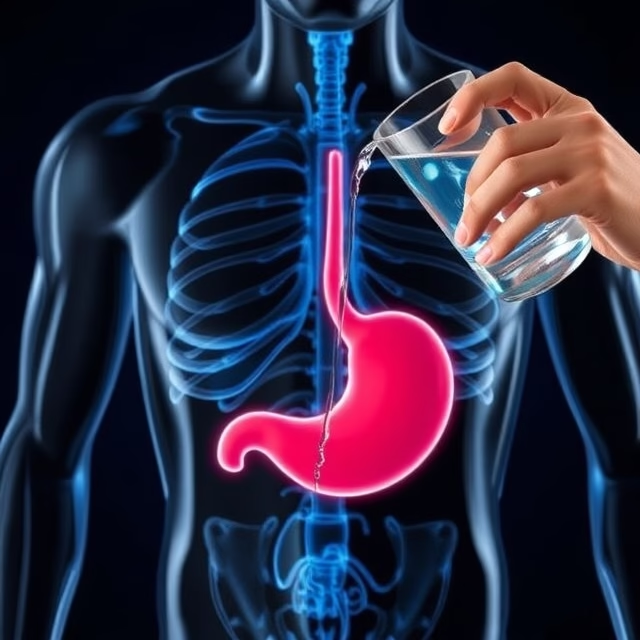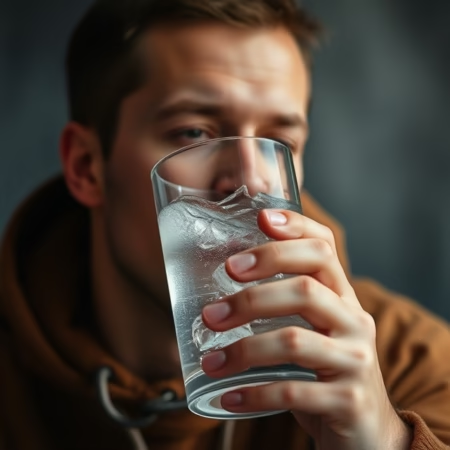Why Does My Stomach Hurt When I Drink Water?

Drinking water is essential for staying hydrated and maintaining good health. However, if you experience stomach pain when you drink water, it can be uncomfortable and concerning. This article explores the possible reasons behind stomach discomfort after drinking water and offers solutions to help you address the issue.
 Dehydration and Water Sensitivity
Dehydration and Water Sensitivity
When your body is dehydrated, it can react to water differently. Dehydration often makes the stomach more sensitive, and drinking a large amount of water too quickly can cause discomfort, bloating, or even pain.
- How to fix it: To prevent dehydration-related discomfort, drink small amounts of water throughout the day rather than large gulps. Hydration is key to overall health, but it’s important to pace yourself to avoid overwhelming your stomach.
If dehydration is the issue, gradually increasing your water intake will help your body adjust and reduce discomfort.
Stomach Irritation or Acid Reflux
Sometimes, drinking water can trigger stomach irritation or acid reflux. If you have a sensitive stomach or conditions like GERD (gastroesophageal reflux disease), even water may cause pain or discomfort. The water can mix with stomach acid, leading to a burning sensation or bloating.
- How to fix it: If you suspect acid reflux, try drinking water slowly and avoid lying down immediately afterward. You can also consider using over-the-counter antacids or consult a healthcare professional if the symptoms persist.
Adjusting your diet and avoiding triggers like spicy or fatty foods may also help manage the condition.
 Overeating or Eating Too Quickly
Overeating or Eating Too Quickly
Drinking water too soon after a large meal can cause your stomach to stretch, leading to discomfort. This is especially common if you’ve eaten large portions or if your meal was difficult to digest.
- How to fix it: If you’ve just had a large meal, wait 30 minutes to an hour before drinking water. Allow your stomach to start digesting the food, reducing the chances of feeling bloated or uncomfortable after drinking water.
Eating smaller, more frequent meals can also help manage stomach pain caused by overeating.
Gastritis or Stomach Ulcers
Another potential cause of stomach pain after drinking water is gastritis or a stomach ulcer. Both conditions involve inflammation of the stomach lining and can lead to pain when any liquid, including water, comes into contact with the stomach.
- How to fix it: If you think you may have gastritis or a stomach ulcer, it’s essential to seek medical advice. A doctor may prescribe medications to help reduce inflammation or heal the ulcer.
Avoiding acidic foods and drinks and sticking to a bland diet may also help reduce symptoms.
 Drinking Very Cold Water
Drinking Very Cold Water
Sometimes, drinking cold water can cause stomach pain or cramps. For people with sensitive stomachs, the shock of cold water can cause the stomach muscles to contract, leading to discomfort.
- How to fix it: Try drinking room-temperature water instead of cold water, especially if you notice discomfort after drinking cold liquids. If you continue to experience pain, it’s best to consult a healthcare provider for further advice.
Choosing a more gradual approach to cold beverages can prevent sudden reactions in the stomach.
Food Intolerances or Allergies
Certain food intolerances or allergies can lead to stomach pain after drinking water. If you have sensitivities to lactose, gluten, or other foods, it’s possible that the water could trigger a reaction if it’s consumed with certain foods or ingredients.
- How to fix it: Identifying and avoiding foods that trigger your intolerances or allergies is crucial. Keeping a food journal can help pinpoint triggers that cause stomach pain after drinking water.
Consult a nutritionist or doctor to get personalized advice on managing food intolerances.
Stomach pain when drinking water can result from several factors, ranging from simple dehydration to more complex conditions like gastritis or acid reflux. Understanding the root cause of your discomfort is the first step in finding the right solution.
By managing your hydration habits, avoiding irritants, and seeking medical advice when needed, you can reduce the pain and improve your overall digestive health. Remember to always listen to your body, and if the pain persists, don’t hesitate to consult a healthcare professional for further evaluation.






